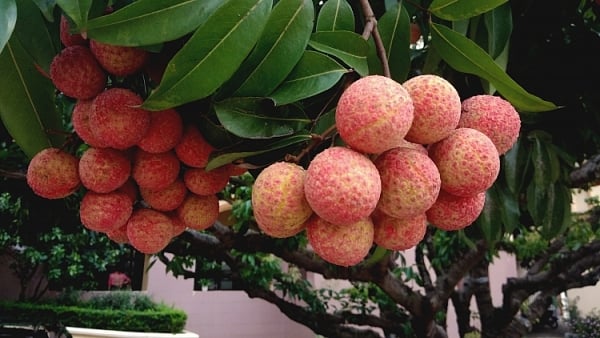Lychees are a delicious and nutritious fruit enjoyed by many. They are packed with vitamins A and C, potassium, and antioxidants. However, for some individuals, consuming lychees can have adverse effects on their health and even exacerbate existing medical conditions.
Listed below are six groups of individuals who should steer clear of lychees, no matter how tempting they may be:

Diabetics
Lychees are high in natural sugars, primarily fructose and sucrose. Even a handful of these fruits can cause a rapid spike in blood sugar levels, making it challenging to manage diabetes and potentially worsening the condition.
Therefore, individuals with diabetes should limit their intake of lychees or avoid them altogether to prevent dangerous complications.
Individuals with Fatty Liver and Dyslipidemia
Lychees are not recommended for those with metabolic disorders such as fatty liver and high blood lipid levels. Consuming large amounts of lychees can introduce significant amounts of sugar into the body, promoting fat accumulation in the liver and exacerbating the condition.
During periods of liver weakness, overeating lychees can overburden the organ, worsening liver-related ailments. If you have a strong craving for lychees, consume a small amount in the morning and avoid eating them in the evening.
Those with a Weak Digestive System or Prone to Internal Heat
Lychees are considered a hot-natured fruit, and overeating them can lead to digestive issues such as bloating and indigestion, especially for individuals with a weak digestive system or those prone to constipation, gastroesophageal reflux, or stomach ulcers. It is best to avoid lychees altogether in such cases.
Consuming large quantities of lychees can result in internal heat symptoms such as acne, prickly heat, itching, hives, dry mouth, and even internal heat buildup, causing discomfort. Young children and the elderly, who typically have weaker digestive systems, should especially avoid overeating lychees, especially on an empty stomach.
If you have a penchant for this fruit, limit your intake, stay hydrated by drinking plenty of water, and incorporate cooling foods into your diet throughout the day to counteract the heat.
Individuals with Autoimmune Diseases
Autoimmune diseases occur when the immune system malfunctions and attacks healthy cells in the body. Lychees are rich in vitamin C and potent antioxidants. For individuals with autoimmune conditions, consuming large amounts of lychees can exacerbate symptoms associated with multiple sclerosis, lupus, and rheumatoid arthritis.
Individuals with Chickenpox
Chickenpox is primarily caused by wind-heat in traditional medicine. Lychees, being a heat-inducing fruit, can worsen the condition if consumed in excess. The heat generated by lychees can disrupt the body’s balance and trigger symptoms like mouth ulcers, internal heat, and acne.
Pregnant Women
Pregnant women need to be cautious about their dietary choices. Lychees’ extremely high sugar content can negatively impact their health, causing a sudden surge in blood sugar levels, which poses risks such as miscarriage, increased likelihood of postpartum hemorrhage, and infection.
Pregnant women are also at a higher risk of developing gestational diabetes due to their increased nutritional needs to support the developing fetus.
Banana Blossom – A Wild Delicacy with 8 Amazing Health Benefits
Banana blossom, also known as banana heart, is a culinary gem that adds a unique twist to a variety of dishes. With its versatile nature, it can be transformed into delicious meals that are not only appetizing but also offer a host of health benefits. Let’s delve into the world of banana blossom and uncover the secrets it holds for both our taste buds and our well-being.















